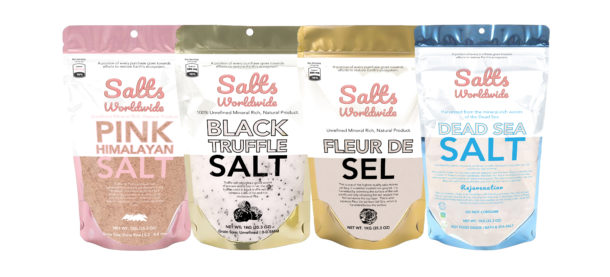
Why You Should Consider a Kosher Salt Recipe
When you think about the salt in your grocery store, do you wonder where the salt came from? Because technically, there’s no difference between coarse salt or sea salt. Here’s a short salt education. Here are some of the four different salt forms-Kosher salt, sea salt, table salt, and sea salt.
Sea salt and kosher salt are both mined from salt mines and are both coarse salt. They are not processed differently, and their properties are identical. Sea salt is harvested from the ocean floor, unlike kosher salt which is obtained by soaking dry flakes in brine and filtering the resulting salt. The concentration of minerals within kosher salt flakes is less than sea salt, which is why sea salt has a much stronger salt flavor.
Salt has been used for food preparation since prehistoric times. Its most well-known product is salt water fish jerky. It can also be bought as cured, smoked, pickled, or smoked salmon, white fish, seafood, and dried fruit. Most kosher salt products are made with natural minerals such as potassium, magnesium, calcium, and sodium. This grade of fine sea salt is the most popular, and because it has so many beneficial properties, it is the salt of choice for pickling and curing.
When food is processed using traditional methods, the mineral content is reduced and sodium is added. This combination can result in an unpleasant taste and the salt loses its trace minerals over time. As a result, sea salts and kosher salt are better alternatives. The trace minerals found in kosher salt are restored through careful curing methods. Sea salt is not as sensitive to the process and therefore does not lose its mineral content.
Kosher salt contains two types of sodium: chloride and sodium chloride. Most sea salts do not contain chloride, which makes them suitable for consumption. The salt is made from magnesium sulfate, which reacts with water and forms sodium hydroxide.
Most kosher salt recipes will call for kosher salt, but not all kosher salt will be the same. There are three grades of kosher salt and each salt grade can be separated by a different number of milligrams of table salt. kosher salt that is high in sodium can cause a salty taste and odor in foods. Certified kosher salt on the other hand is kosher salt that meets the standards of the Jewish Dietary Law, which strictly prohibits the ingestion of any kind of salt that has a higher percentage of salt. Kosher salt that meets the required specifications meets the flavor and texture requirements of kosher food recipes.
The salt recipe you use can have a huge impact on the flavor of your meal. It is important to make sure that the salt you use will adequately season your food. Many people like their food’s very salty, while others prefer it very sweet. You can experiment with different salt recipe options and find one that works perfectly for your taste. Most restaurants will be able to provide you with the salt that you need, but if not, you can find plenty of suppliers on the Internet. Just be sure to read salt recipe labels closely and follow the directions provided.
Kosher salt has been mined since biblical times. The salt was used for religious ceremonies in ancient times as well as for curing a wide range of illnesses. Today, kosher salt continues to be mined around the world and is still considered to be one of the healthiest and most nutritious salts available. Kosher salt is certified kosher salt, which means that it meets all of the Jewish dietary laws and has been carefully mined and tested so that it will retain its rich flavor for years to come.



